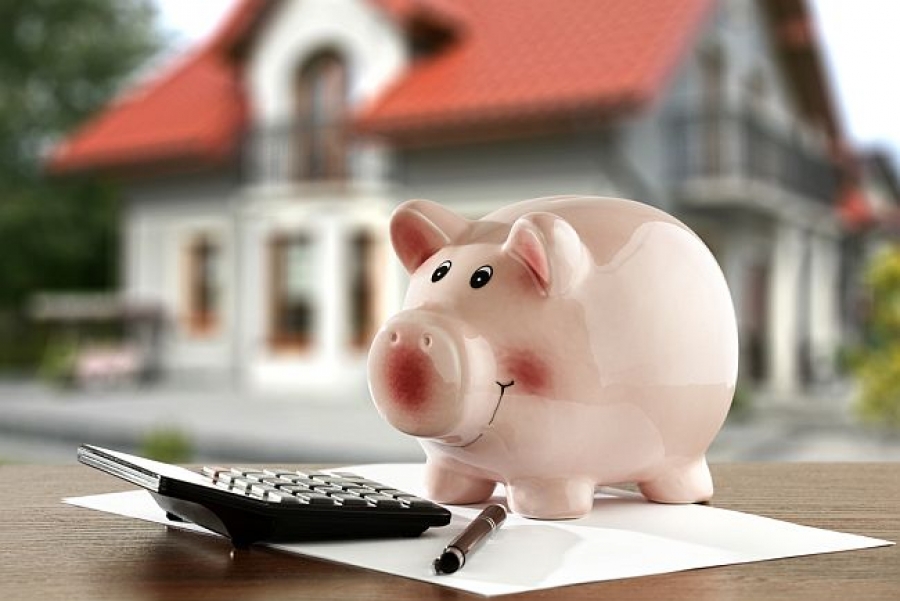Building an Emergency Fund to Cover Unexpected Home Repairs

With homeownership comes new responsibilities, including repair and maintenance expenses. Sooner or later, you'll encounter a leaky faucet or a blown circuit breaker and quickly learn that keeping your household up and running is no longer as simple as a call to the landlord.
Deciding how much money to spend on fixing or replacing something that's broken is often a judgment call. Either way, you need the cash to cover the expense. Building an emergency fund to assist with unexpected costs can help you promptly take care of home repairs without disrupting your daily routine.
Establish an Estimated Baseline Cost of Annual Home Repairs
Saving for a home purchase requires persistence and dedication - good habits that should continue well past settlement day. The total amount you'll need in an emergency savings fund can vary widely from home to home, as certain home characteristics may cause you to spend more or less than average on annual maintenance and repairs. Make sure to consider the age of the property, as older houses generally require more upkeep. The quality of appliances, fixtures and underlying systems like heating, cooling and plumbing may also affect your projected home repair costs.
It's also important to consider your home's location. Homes in flood-prone areas may be more susceptible to water intrusion, which can be mitigated with flood insurance. Likewise, exposure to temperature extremes, both hot and cold, can have detrimental effects on your home that require additional repair and maintenance expenses.
Budget for Emergencies and Big Fixes
Your emergency fund should be an amount you save over and above the annual maintenance costs of your home. Pay for predictable monthly or quarterly bills like lawn care, utilities, association dues and regularly scheduled cleaning services out of your household spending budget, not your emergency savings. You can determine how much you're spending in ongoing maintenance by tracking payments and recording the bills you pay in a spreadsheet or a personal financial app.
You may need to increase your emergency fund balance as larger items in your home begin to age. Keep track of your appliances and other items that may need to be replaced in the next year or so, and set aside money to pay for new ones. A large expense such as a roof replacement may require an even longer savings period.
Even in new homes, unplanned repairs can arise from a severe weather event, like high winds or hail. As any homeowner knows, an appliance that was previously working just fine may begin to malfunction for no obvious reason. An emergency fund allows you to handle surprises like these and pay for repairs that aren't covered by insurance.
Plan for Future Upgrades
Once you're comfortable with your new home and your ability to handle the related expenses, you can start thinking about additional home improvement projects - ways to improve your space rather than simply keep up the existing features. When you're ready to tackle something new, start small with a minor project such as a bathroom remodel. Eventually, you can save for larger-scale remodels like a kitchen renovation or an addition that will add value to your home and transform your living space.
If you're about to become a new homeowner, expect the unexpected - build an emergency fund for unforeseen repairs. On top of annual maintenance expenses and the cost of your monthly mortgage and escrow, an emergency savings cushion will help you to breathe easier and make the homeownership experience a positive one.
Want to estimate your home improvement costs before talking with a contractor? Claim your home for free with bluehammer to estimate costs, secure your home inventory and learn more about your home.
* THIS REPORT IS AN OPINION THAT MAY BE INACCURATE AND IS PROVIDED SOLELY AS AN INFORMATIONAL TOOL NOT DESIGNED TO PROVIDE DEFINITIVE ANSWERS. ALL ELEMENTS ARE OFFERED "AS IS" AND BLUEBOOK EXPRESSLY DISCLAIM ANY AND ALL WARRANTIES, REPRESENTATIONS, AND GUARANTEES OF ANY NATURE, EXPRESS, IMPLIED OR OTHERWISE, INCLUDING BUT NOT LIMITED TO ANY IMPLIED WARRANTIES OF MERCHANTABLITILY, NONINFRINGEMENT, TITLE, QUIET ENJOYMENT, ACCURACY, OR FITNESS FOR A PARTICULAR PURPOSE. IN NO EVENT SHALL BLUEBOOK (OR THEIR SUPPLIERS) BE LIABLE FOR ANY GENERAL, DIRECT, SPECIAL, INCIDENTAL, INDIRECT OR CONSEQUENTIAL DAMAGES OF ANY KIND, OR ANY DAMAGES WHATSOEVER (INCLUDING WITHOUT LIMITATION, THOSE RESULTING FROM USE OF THE PRODUCT, INCLUDING : (1) RELIANCE ON THE MATERIALS PRESENTED, (2) COSTS OF REPLACEMENT GOODS, (3) LOSS OF USE, DATA OR PROFITS, (4) DELAYS OR BUSINESS INTERRUPTIONS, (5) AND ANY THEORY OF LIABILITY, ARISING OUT OF OR IN CONNECTION WITH THE USE OR PERFORMANCE OF INFORMATION) WHETHER OR NOT BLUEBOOK HAS BEEN ADVISED OF THE POSSIBILITY OF SUCH DAMAGES.